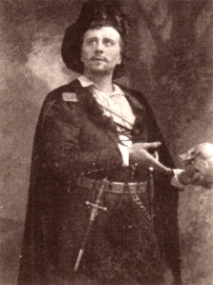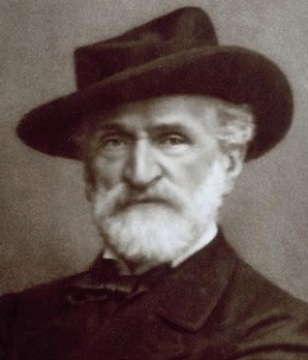Today in WMH: Perhaps the Weirdest Title Ever
 6/30 Today in Weird Music History: 1913. French composer Erik Satie composes a piece titled, Three Dessicated Embryos. The 3 short piano pieces were actually mildly descriptive of sea crustaceans, but also dedicated to satirizing famous composers. Considered a charlatan by many, Satie was a founding force for simplicity as well as expression of sardonic humor in music. Other interesting titles include Three Pieces in the Form of a Pear, and Genuine Flabby Preludes for a Dog. His music was funny at times for the performer as well with instructions to play “Like a Nightingale with a Toothache,” “Light as an Egg,” and “Wonder About Yourself.” But the all time favorite might be: “play this motif 840 times in succession, it would be advisable to prepare oneself beforehand, in the deepest silence, by serious immobilities”
6/30 Today in Weird Music History: 1913. French composer Erik Satie composes a piece titled, Three Dessicated Embryos. The 3 short piano pieces were actually mildly descriptive of sea crustaceans, but also dedicated to satirizing famous composers. Considered a charlatan by many, Satie was a founding force for simplicity as well as expression of sardonic humor in music. Other interesting titles include Three Pieces in the Form of a Pear, and Genuine Flabby Preludes for a Dog. His music was funny at times for the performer as well with instructions to play “Like a Nightingale with a Toothache,” “Light as an Egg,” and “Wonder About Yourself.” But the all time favorite might be: “play this motif 840 times in succession, it would be advisable to prepare oneself beforehand, in the deepest silence, by serious immobilities”
Here’s a link to Three Dessicated Embryos. Actually quite a fine piece: http://www.youtube.com/watch?v=W6LSyxGa4F8
Today in WMH: Stop the Presses… Ludwig Joins Allied Fight!
6/27 Today (well, yesterday) in Weird Music History: 1941. The BBC adopts a 4-note call sign, emblematic of the fight over tyranny. But rather than choosing a patriotic British composer, they instead went with an iconic German master, Ludwig van Beethoven. Not only does his music embody triumph over struggle and the freedom of expression, the opening three notes of his Fifth Symphony also sounds amazingly (or coincidentally?) like the letter “V” as expressed in Morse Code (dot, dot, dot, dash)
Translation: Da, Da, Da, Duuummmm = V for Victory!
Today in WMH: To Be, or Not To Be Related…
 6/26 Today in Weird Music History: 1888 and 1982. Sometime around this date in June, 1888 Peter Ilyich Tchaikovsky began writing his epic fantasy-overture, Hamlet. In a weirdly coincidental, yet not “related” story, in 1982 pianist Andre Tchaikovsky leaves his skull to the Royal Shakespeare Company expressly for use in productions of Hamlet.
6/26 Today in Weird Music History: 1888 and 1982. Sometime around this date in June, 1888 Peter Ilyich Tchaikovsky began writing his epic fantasy-overture, Hamlet. In a weirdly coincidental, yet not “related” story, in 1982 pianist Andre Tchaikovsky leaves his skull to the Royal Shakespeare Company expressly for use in productions of Hamlet.
Today in Weird Music History: A Musicologists Dream
 6/25 Today in Weird Music History: 1767. Georg Philipp Telemann expires in Hamburg, leaving behind thousands of uncatalogued manuscripts: operas, cantatas, sonatas and concertos. Yet there is also a first to be found in the stash. The one viola concerto in the collection is regarded as the earliest for that fine instrument.
6/25 Today in Weird Music History: 1767. Georg Philipp Telemann expires in Hamburg, leaving behind thousands of uncatalogued manuscripts: operas, cantatas, sonatas and concertos. Yet there is also a first to be found in the stash. The one viola concerto in the collection is regarded as the earliest for that fine instrument.
Today in WMH: Birthdays for Lots and Less.
6/24 Today in Weird Music History: 1901 and 1935. Happy Birthday today to two 20th Century music pioneers on the opposite ends of the notated spectrum. Harry Partch, inventor of the 43-note scale, was born in 1901. Terry Riley, regarded as the father of musical minimalism, was also born on this date in 1935.
Today in WMH: Birth of the Maestro Profession
6/19 Today in Weird Music History: 1820. 193 years ago, Louis Spohr was fed up trying to keep the orchestra together while playing his violin. Prior to 1820, orchestra concerts were led from either the concertmaster chair or a keyboard. But as music became more complicated, the need for a leader to beat time and develop a universal interpretation became a necessity. So, Louis Spohr took the baton on this date and became a the first modern maestro–the first to silently lead an orchestra with a stick of wood. Controversial at first, it soon became clear that the invention of the conductor had many advantages, including the expansion of forces to previously unimaginable sizes. Within a couple of decades, typical orchestral forces would grow into an ensemble of over 100 musicians. And while Spohr’s compositions are rather forgettable, later maestro-composers such as Wagner and Mahler owe much to his decision to wave the stick.



